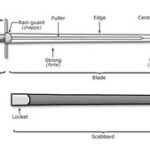So, your job is mundane and boring. You’re an artist stuck in a data entry job, a social planner extraordinaire trapped in a customer service call center, or a budding writer who spends your days completing pre-formatted reports.
For creative individuals, the workplace can be a double-edged sword. If you land a position that taps into your imagination and makes use of your talents, then your job can be a creative outlet and a rewarding component of your life.
However, many artistic or creative personalities find that their creative sides go unutilized in their jobs. Unfortunately, jobs requiring repetition, logic, accuracy with data, customer service skills or the ability to follow structured rules, formats and regulations are much more common than those that nurture the creative spirit. Many creative types see themselves as suffering through the boring indignities of their day jobs to earn a paycheck and finding fulfillment in pursuits outside of work.
If you need to eat and pay the rent, you may very well be forced into a position that doesn’t fully utilize your creative strengths. We can’t all be writers, artists or musicians, at least not right away. But that doesn’t mean that you have to settle for a boring and unfulfilling work life in the meantime. While you’re looking for the creative work role that’s right for you, why not make the most of the job you have? Use your creative talent to build interesting and fulfilling tasks into your routine and boring position.
How do you build creativity into your job?
Regardless of where you work or what you do, there are probably needs within the organization that your talents could help meet. Obviously, you can’t waltz into your bosses’ office and say “You know, I’ve decided I don’t want to be in data entry anymore. Move me to marketing, would you?” But that doesn’t mean you can’t develop and volunteer to take on tasks or projects that will allow you to strut your creative stuff in addition to doing your regular job.
Below are just a few ideas of projects you might consider developing and taking on in your workplace:
1. Designing and/or writing a staff newsletter designed to keep employees abreast of company news and events.
2. Figuring out a way to take a cumbersome or paper-based process and make it faster and more efficient using technology.
3. Developing content, interactive features or a new design for your organization’s web site.
4. Starting and maintaining a blog for your company.
5. Volunteering to coordinate and organize social or recognition events for your organization.
6. Organizing and running a committee to foster community service within your company. You could also suggest and coordinate interesting staff development activities such as courses on finances, computers, writing or stress management.
8. When you started working at your company, were you amazed at how everything you needed to learn was just “in so-and-so’s head” and not documented or written down anywhere? Fix that problem for future trainees by designing training manuals and process documentation.
As you can see, there are many projects you could take on to bring more creativity to your job. But what’s in it for you? After all, since you can’t give up the regular and more mundane tasks you were hired to do, suggesting and taking on any of these projects or some bright idea of your own would just be giving yourself more work, right?
Actually, you can gain quite a bit from building enjoyable project work into your day job. Here are just a few answers to the “what’s in it for me?” question.
1. You’ll like your job better
People who make use of their talents, skills and interests at work are much happier on the job than those who don’t. If you can spend part of your workday doing something you enjoy, you’ll be much more invested in your job and satisfied during your time at the office.
2. You’ll hone your skills
Whether your passion is writing, graphic design, or organizing events, practice makes perfect. Creating opportunities to use and fine-tune your craft will make you better at what you do.
3. You’ll build marketable experience
So, you don’t want to do data entry, answer phones or be an administrative assistant for the rest of your life. Your dream is to be a writer, an event planner, or something else entirely. Since the work of your dreams is harder to come by, you need to gain experience that will put you a cut above your competition when you hit the job market or take the plunge into freelancing. Your newsletters, articles or web content can become a nice collection of clips or a portfolio for you to bring along on job interviews or submit to potential clients. Instead of being an office clerk who hopes to become a party planner but has no experience in the field, your resume can show that you’re the office clerk who coordinates annual social events and ceremonies.
4. You’ll impress your boss and your co-workers
One of the best ways to get out of routine work that bores you is to demonstrate to your boss and colleagues that you are capable of doing a variety of things. Both your initiative and your talent might be remembered when an opportunity for a promotion comes along. In extremely lucky circumstances, you might even find that once everyone comes running to you when they need something written or edited, that your position is re-created or redesigned because you meet a need the company didn’t even realize it had until you showed them.
Getting Started
So, you’ve figured out a great idea for both building more creativity into your job and doing something positive for your employer. Where do you go from here?
1. Outline or draft your ideas
Depending on your company culture, you may need as much as a full-fledged proposal or as little as an informal coffee chat with your boss to get started. Regardless, outline and write up your plan in an organized format. What goals are you trying to meet? What resources do you need? How much time will it take? How will you work in this new task while still performing your key job functions?
2. Talk over your ideas with your boss
Ask for some time to discuss your thoughts and ideas with your boss, and to request the opportunity to give your plan a try. Be prepared to demonstrate to your boss how your idea will benefit the organization, and to reassure him that your regular job tasks won’t suffer.
3. Get feedback from co-workers
Once you’ve discussed your ideas with your boss, share your plan with co-workers and get feedback from them as appropriate. This gives you a chance to assure the office control freak that your newsletter isn’t intended to replace her monthly staff meetings. Who knows, you might also be able to solicit help and interest from your colleagues.
4. Go slow
You don’t want to bite off more than you can chew and end up either failing to deliver on your idea or getting so bogged down in it that your regular job suffers. Keep your project ideas manageable and always make sure that your regular job tasks come first.
A boring, routine job can be just as stressful as one that is too challenging or demanding. By finding ways to use your creativity at work, you can alleviate some of that stress and build skills and experiences to help land you in a position more suited to your skills and personality.




